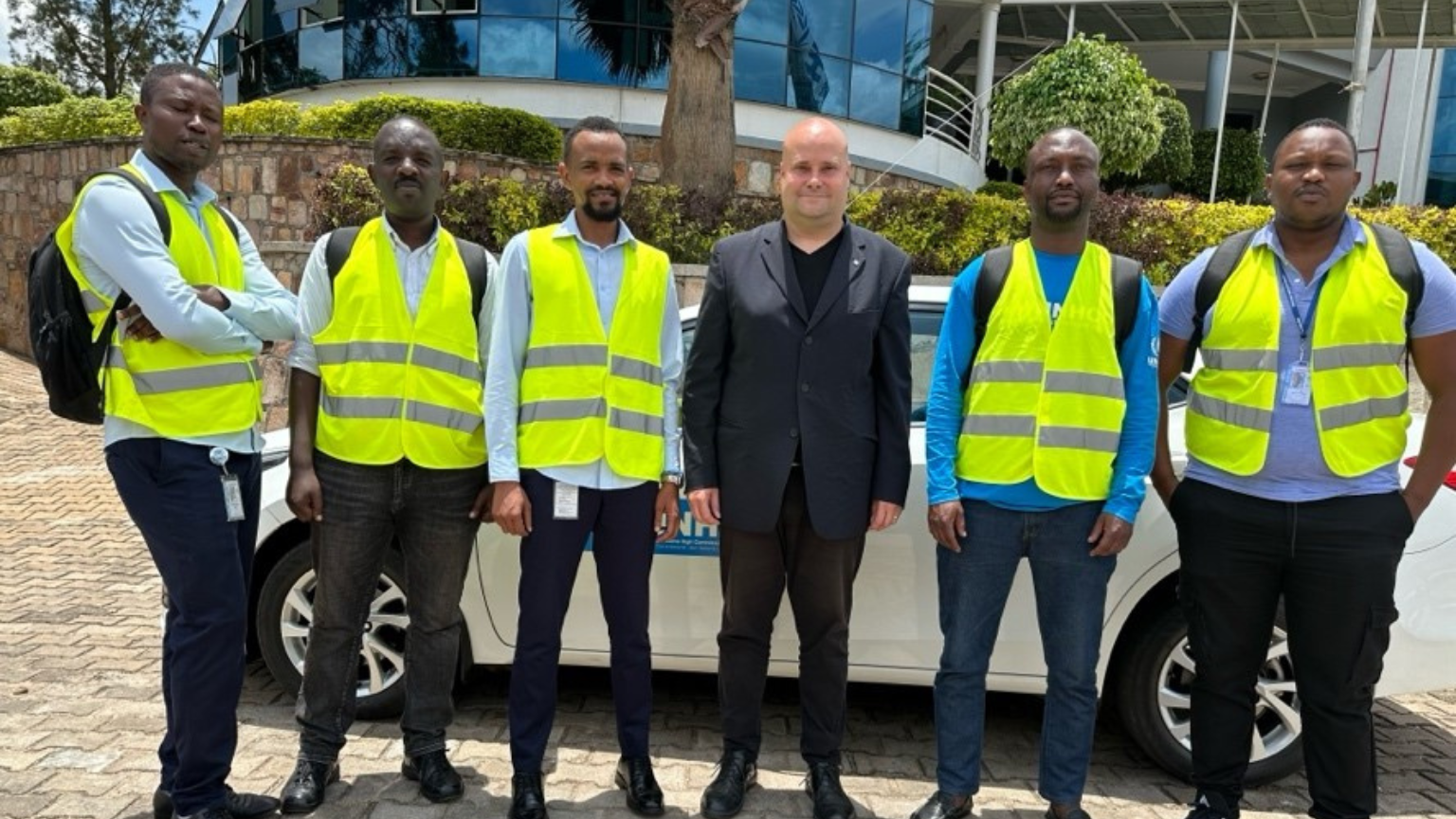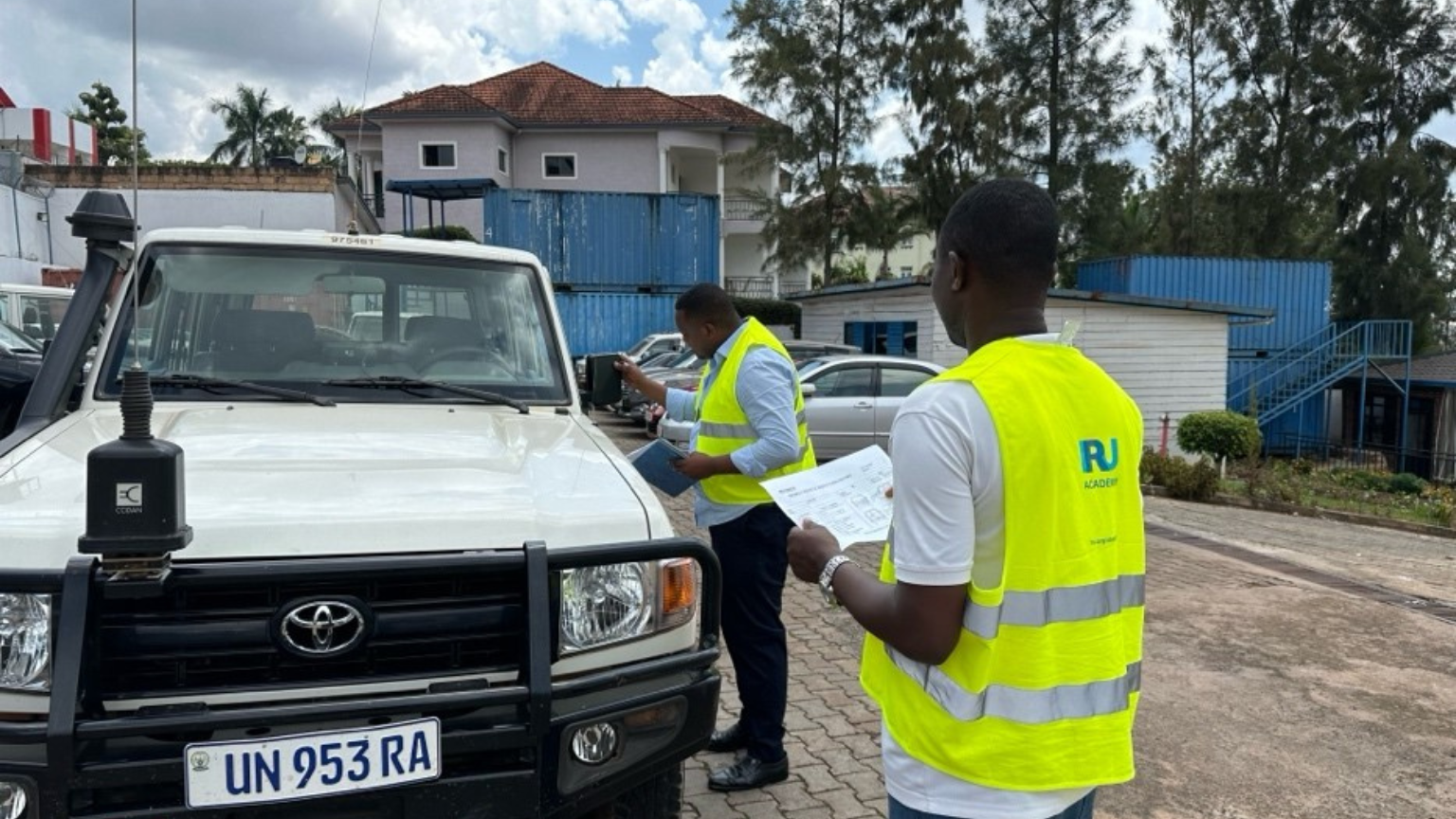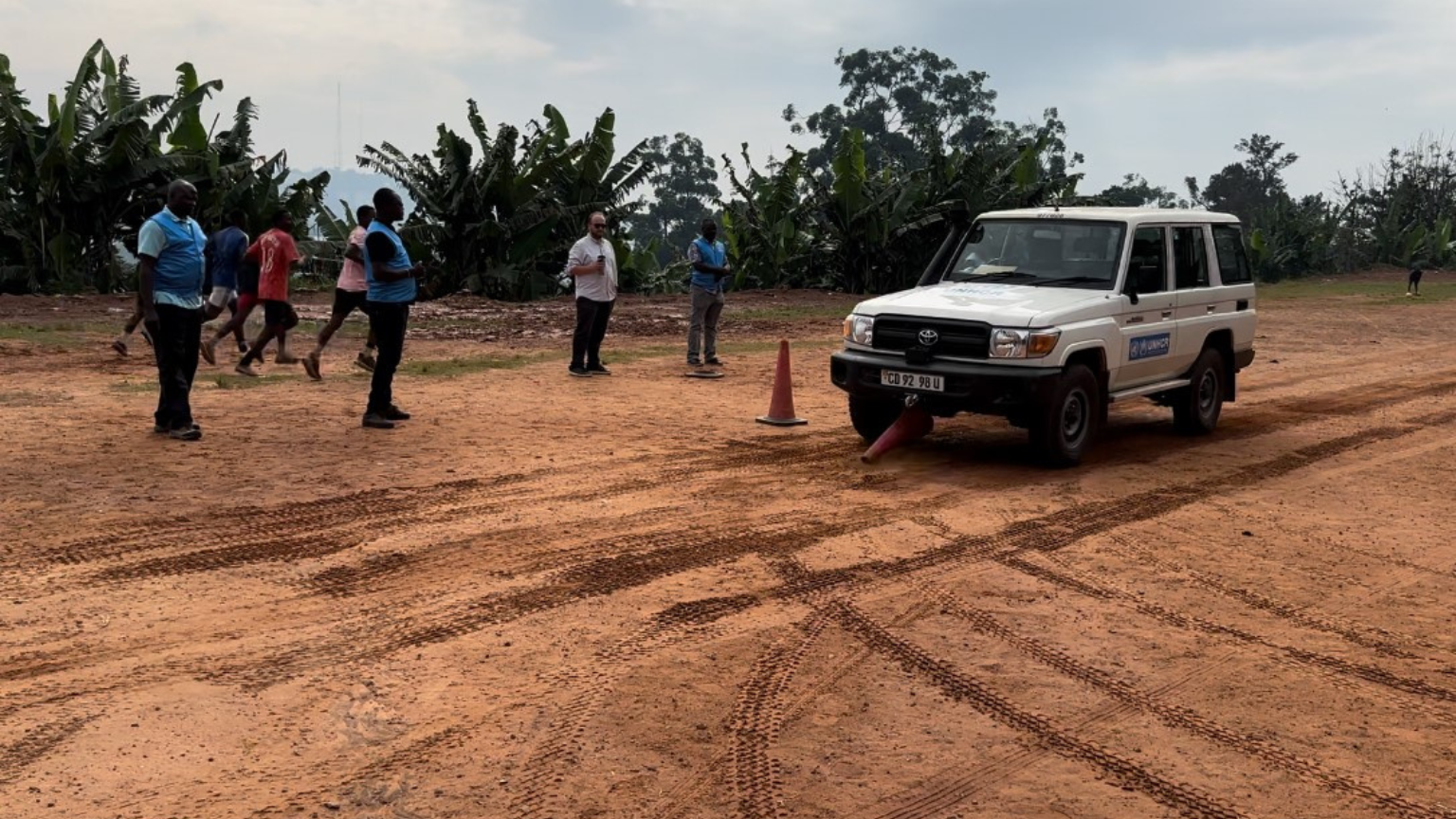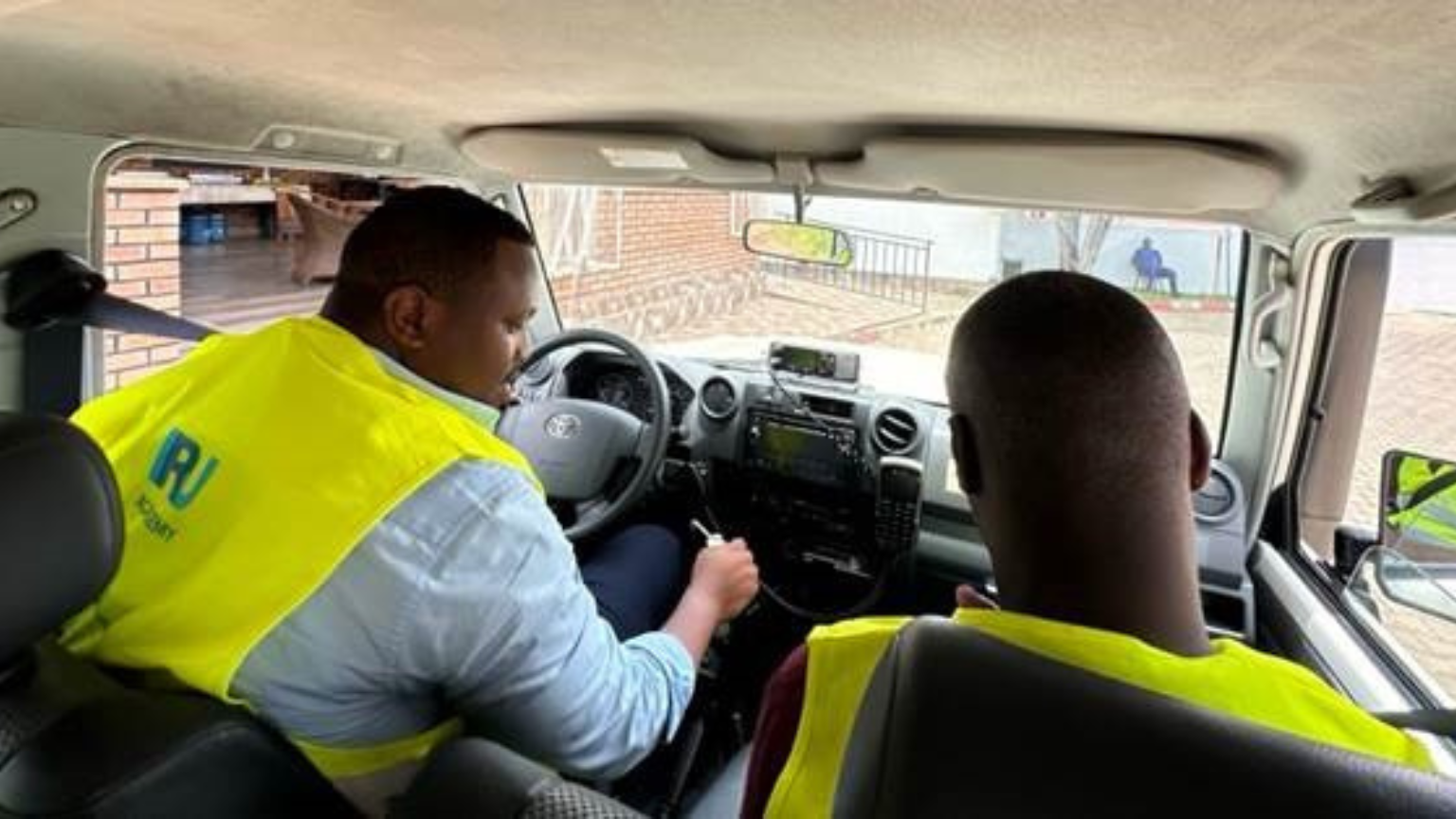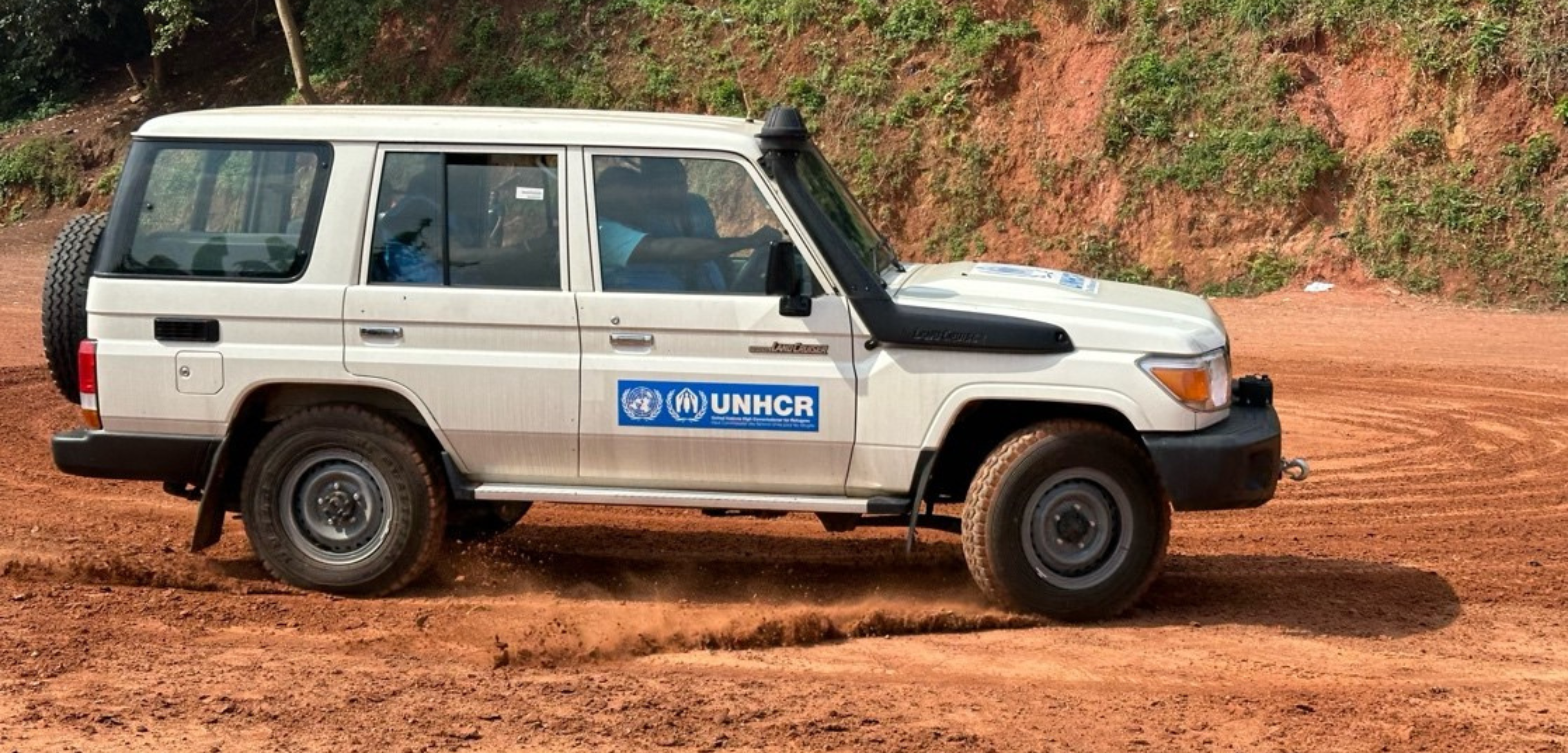Safety is at the heart of our work. For decades, we, together with our members, have worked to make road transport safer for everyone, including for drivers operating vital life-saving services.
On World Day for Safety and Health at Work, IRU, the world road transport organisation, reinforces its focus on a safe working environment for drivers conducting vital humanitarian road missions, often to remote and rural locations.
To raise road safety in key African countries, we have teamed up with the United Nations High Commissioner for Refugees (UNHCR).
The UN Refugee Agency operates a global fleet of over 6,000 light vehicles.
International and local staff members as well as partner organisations rely on UNHCR’s fleet and drivers to conduct vital humanitarian road missions.
We developed a tailored training programme, based on internationally recognised standards, adapted to the local context and operational framework of each country and mission.
The training and certification programmes include special courses for trainers, pre-training knowledge tests, post-training assessments, and defensive training skills for complex environments.
Road crashes constitute a major threat to the health and safety of UNHCR personnel, implementing partners, affected people and populations, and local communities. Accidents also challenge the UN Refugee Agency’s ability to deliver its vital life-saving programmes. Internationally recognised safety training and certifications lower accidents.

